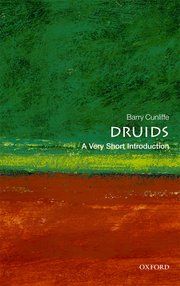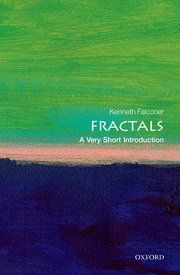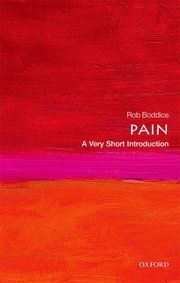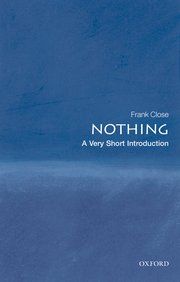
The 5 Weirdest Titles in Oxford’s “Very Short Introduction” Series
The Very Short Introduction series from Oxford University Press has been around for twenty years and their promise has been the same: that the half inch thick volumes can convert anyone into a pedestrian of any academic field. As if reading all of them will transform me into the renaissance thinker I pretend to be.
“Well of course I can prepare a lecture on Foucault (no. 122) by next week,” I say to the Dean of Something as I rehearse my TED talk on crystallography and the Mexican Revolution (no. 469 and 459 respectively). When drinking with friends, I’ll dominate the conversation with my intellect, informed by a lexicon of hundreds of subjects to which I’ve devoted dozens of minutes. “Stow your googling phones my friends,” I’ll say. “The dilettante of academia shall guide you.” Yes, the Very Short Intro series promises this validation and more all for the price of £10.99 per subject.
Aside from intellectual tourism, the majority of the series are elegant introductions to any sorts of subjects (the slim volumes betray their intellectual weight). Still, at 544 (and counting), there are some weird titles in the mix. These are the strangest ones to date, but keep an eye out for A Very Short Introduction to Dinosaurs coming out this holiday season.
Druids: A Very Short Introduction by Barry Cunliffe.
What are Druids? Where do they come from? Why do they chant “Virgin” whenever I walk by their bonfires? All of these questions are addressed by the Professor Emeritus in European Archeology at University of Oxford. The multicultural layers of the ancient religions is where Cunliffe spends the majority of his energy. He also focuses on how druid iconography is still very present in today’s cultural imagination. If anything, No. 232 in the series will make you more sympathetic to the village folk in The Wicker Man.
Fractals: A Very Short Introduction by Kenneth Falconer
Strangely enough I went to the launch event for this volume (free wine). With the beautiful designs on first page, Falconer writes descriptively on the intricate mathematical details that appear naturally in plant and animal life. Then he zooms out to look at fractals on a cosmic level. Then he zooms in towards fractal behaviour on an atomic scale. It’s obvious Falconer has a contagious, adolescent enthusiasm for these patterns. If you aren’t fascinated by the mathematics, then there are plenty of pretty pictures to gape at.
Pain: A Very Short Introduction by Rob Boddice
The majority of the VSI series are concepts approached with academic expertise. It’s actually quite a challenge to define what Sleep, Risk, and Ethics are until you’re prompted. No. 512 in the series stands out as an exceptional concept review, more so because every sentence is hilarious when read out of context. The book is rife with gems like: “While babies certainly do suffer pain, there is no clear way to establish the exact nature of it.” It’s difficult reading only because it was hard not to laugh. And of course the pain expert has a last name like “Bod[d]ice.”
Racism: A Very Short Introduction by Ali Rattansi
Now is a good time to emphasize these are not “How-To” guides. And though you may find trouble explaining this to strangers, it’s important to stress No. 149 is not A Beginners Guide To Racism or Racism for Dummies. Rather, it is the eloquent demystification of racism by Ali Rattansi, a writer who can distill decades of literature into consumable chapters. He also wrote No. 283, Multiculturalism, which is probably more acceptable to read in public.
Nothing: A Very Short Introduction by Frank Close
As great as it would be for No. 205 to be 150 blank pages, the Oxford University Press hasn’t internalized the lessons from No. 378 (Humour by Noël Carroll). Like Pain, this is a concept appraisal that draws from early sciences, literature, philosophy, and art. Close’s volume is also mind-boggling as each chapter forces the reader towards more abstract thoughts that go far beyond human capability. Chapter one asserts our construction of Nothing is always in relation to existence, that Nothing is defined by the absence of something rather than itself. Then you get to the chapter two: Einstein and Nothing. It is not a light read, but still, Nothing is a great gift for the thoughtful stoner in your life.
Honorable mentions: The Devil, Drugs, Emotions, Rocks, Terrorism, Dreaming, Bestsellers, The Meaning of Life, Dictionaries, Reality, and Paul.
If there’s a volume you think is strange and omitted, find me on Twitter. I love talking about this nerdy little series.


















